By Scott Swanson and Kelly Kenoyer
Lebanon Local
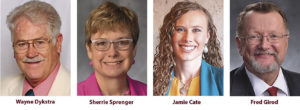
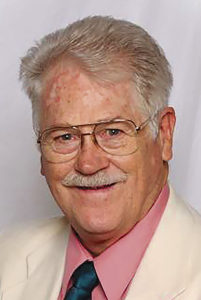 Wayne Dykstra was the winner of the only contested Lebanon City Council election, for the Ward 1 seat, in the Nov. 3 election.
Wayne Dykstra was the winner of the only contested Lebanon City Council election, for the Ward 1 seat, in the Nov. 3 election.
Dykstra, a retired minister, defeated high school student Zach Beck, with 871 votes (46.21%) to Beck’s 822 votes (43.61 percent). Write-in candidate(s), who were not dellineated in early results, got 192 votes (10.19%). One who mounted an aggressive, multi-faceted campaign was Christan Stagg.
Mayor Paul Aziz, Ward II incumbent Rebecca Grizzle and Ward III incumbent Jason Bolen all ran unopposed and drew more than 95 percent of votes for their seats.
Dykstra, 76, has been a pastor, college professor, and owner of an electronics sales and service business. A graduate of Lebanon Union High School, he went on to earn multiple graduate degrees in ministry areas.
He has been a board member for the Lebanon Museum Foundation, president of the Lebanon Genealogical Socity, and has served on a range of other professional boards and in various community activities.
He and his wife of 55 years, Patricia, have two grown children.
“I guess the best thing for me to do is learn the lingo, what the priorities are as far as the council is concerned,” he said. “I’ll just go with it. I am not going in with an agenda.”
He said he is concerned about the condition of some city streets, which he described as “kind of rough and in need of some repair.”
Also, he said, another concern is “the homelessness problem, which is an ongoing problem.”
“I’m not sure how we’re going to solve it, but it needs to be taken care of.”
Aziz, who sits on the Lebanon Museum board with Dykstra, predicted that the new member “will be a great asset to the council.”
“I think Wayne is going to be a great councilor. He’s been involved in the Genealogy Society and other different things in the community.”
Aziz said one of the big motivators for his decision to run again was “to help the city get through the COVID pandemic and make sure the community is set up for economic recovery once again.”
Another priority, he said, is the Westside Interceptor.
“It’s not glamorous – it’s a sewer project; but it’s a necessity,” he said, noting that the project is critical to development on Lebanon’s west and south regions.
“We’ve actually had to stop, halt development to some extent. We aren’t at capacity but we’re close.”
The project will be “very expensive – millions of dollars,” he added. “It’s something we’ve been working on forever. It’s quite a big project.”
County Sheriff’s Office Levy
The four-year Linn County law enforcement four-year local option tax levy fell short of passage, with 42,312 (62.79%) no votes and 25,072 (37.21%) yes.
Sheriff Jim Yon said he was “disappointed” with the result of the levy, which he put on the ballot early to give his department breathing room, should it not pass, since the current levy extends through June of 2022.
“I think there was confusion what it actually meant,” Yon said of the levy request, which was identical to what county property owners currently pay.
“It wasn’t above and beyond what we’re currently paying,” said Yon, who has stated that the levy accounts for more than half of his budget, which includes patrol and crime investigation, adult and youth corrections services, civil services, 9-1-1 emergency services, animal control and emergency management.
Linn County Commission
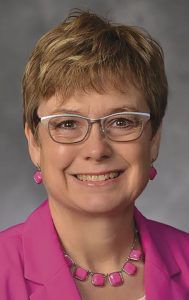 Republican Sherrie Sprenger was a runaway winner in the four-candidate race for Linn County Commission Seat 3, with a 65.36% lead (43,861 votes) over Democrat Scott Bruslind (26.37%, 17,697), Independent Gary Sullivan (5.89%, 3,951) and Libertarian Christopher Wade (2.20%, 1,478).
Republican Sherrie Sprenger was a runaway winner in the four-candidate race for Linn County Commission Seat 3, with a 65.36% lead (43,861 votes) over Democrat Scott Bruslind (26.37%, 17,697), Independent Gary Sullivan (5.89%, 3,951) and Libertarian Christopher Wade (2.20%, 1,478).
“I’m just grateful the people of Linn County have put their trust in me,” said Sprenger, who has served in the state House of Representatives since 2010.
She said a big difference will be that county meetings are held weekly, rather than during an “intense” six-month biannual long session or the month-long short sessions held in even years.
“The comment from my family was that during those times I had no life. The legislative sessions are a very intense process.”
She said she’s looking forward to working on issues “that are close to home, and frankly, I’m a little relieved to be out of Salem and back home all the time.”
A big issue, as Sprenger joins the County Commission, will be COVID, “keeping people safe and hopefully keep our economy moving at the same time,” she said.
She also wants to get the public more engaged in local government.
“I’m all about taking people’s government process to them, and certainly I hope the current commissioners will join me in having the meeting on the road,” adding that she thinks County Commission meetings should be held around the county, not just in the county courthouse.
Sprenger also plans to meet personally with anyone who wants to, she said.
“I’ve talked at about 100 meetings in 100 days. “I’ll give anybody a meeting who wants a meeting.”
State House District 17
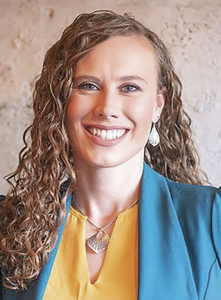 In the race for the state House of Representatives 17th District seat being vacated by Sprenger, Republican Jami Cate of Lebanon (25,963, 69.31%) finished well ahead of Democrat Paige Hook of Stayton (10,771, 28.75%) and Pacific Green Party candidate Timothy Dehne of Scio (667, 1.78%).
In the race for the state House of Representatives 17th District seat being vacated by Sprenger, Republican Jami Cate of Lebanon (25,963, 69.31%) finished well ahead of Democrat Paige Hook of Stayton (10,771, 28.75%) and Pacific Green Party candidate Timothy Dehne of Scio (667, 1.78%).
Cate, who grew up on a farm outside Lebanon and is a summa cum laude graduate of Oregon State University in agriculture, has no previous political experience, and said she is uncertain how things are going to look in Salem due to the coronavirus pandemic.
“No one knows what session is even going to look like, so we’re all just kind of waiting to see how the COVID restrictions will impact any plans for sessions, whether the public can come in and take part in the process or not.”
“As far as having any set plans, I can’t say I have any right now. We’re just gonna roll with the punches.”
Cate, fresh out of her first Republican Caucus meeting in Salem last Friday, said her top priorities will be continuing the focus on handling COVID “and trying to get our businesses back on track.”
“Everyone has been suffering so much with this pandemic as well as the efforts to try to recover after the forest fires.”
Those are “non-partisan” issues, she noted, “which is a nice change. Our legislature has really been focused for a long time on really partisan issues.
“I try to find the silver linings for sure,” she added. “I hope, in all this devastation and suffering, at least some good will come out of it.”
Her victory was a “team effort,” she said.
“I’ve been really blessed with the team I’ve had working with me, but we’d never win without the voters. Thank you to them for the opportunity to be their voice.”
State Senate District 9
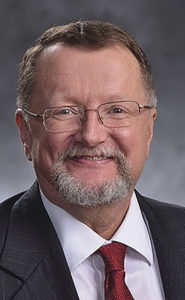 In the race for the state Senate 9th District seat, Republican incumbent Frank Girod of Lyons (49,262, 67.10%) won handily over Democratic/Pacific Green challenger Jim Hinsvark of Woodburn (22,019, 29.99%) and Libertarian Patrick Marnell (2,043, 2.78%).
In the race for the state Senate 9th District seat, Republican incumbent Frank Girod of Lyons (49,262, 67.10%) won handily over Democratic/Pacific Green challenger Jim Hinsvark of Woodburn (22,019, 29.99%) and Libertarian Patrick Marnell (2,043, 2.78%).
Girod, a retired dentist who has served in the state Senate since 2008 after serving two terms in the state House of Representatives, said he was “really confident” that he would get support from voters, and did not spend any money on his campaign other than $750 for a statement in the voters pamphlet.
“I’m always grateful that the people turn out and vote for me. It’s a real honor to be elected and I don’t take that lightly. “I feel really strongly that I’m blessed to have such a nice district.”
Instead of pouring money into his own campaign, he said, he donated campaign funds to other “key” races, to “try and get more Republicans elected.”
He was pleased with the results of the Senate District 5 seat on the southern Oregon Coast, where Republican Dick Anderson, currently mayor of Lincoln City, defeated Democratic Coos County Commissioner Melissa Cribbins.
“This is the first time in a long time we’ve gotten a seat on the coast,” Girod said.
He said his No. 1 priority for the next term will be taking care of those impacted by the fires in the North Santiam Canyon, where he lost his own home.
“There are whole communities that basically got destroyed. The city of Detroit is pretty much gone.
I grew up in the area, so it really is bothersome.”
“No 2 is always to look out for timber and agriculture; those are the economic drivers of our communities.
“I am concerned about getting kids back into the schools and classrooms. I think that’s extremely important, and that schools get an adequate amount of money to deal with the COVID problem.”




